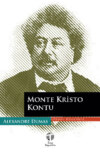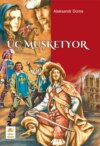Kitabı oku: «The Regent's Daughter», sayfa 11
CHAPTER XXII.
IN BRETAGNE
Our readers must now permit us to look backward, for we have (in following the principal persons of our history) neglected some others in Bretagne, who deserve some notice; besides, if we do not represent them as taking an active part in this tale, history is ready with her inflexible voice to contradict us; we must, therefore, for the present, submit to the exigencies of history.
Bretagne had, from the first, taken an active part in the movement of the legitimated bastards; this province, which had given pledges of fidelity to monarchical principles, and pushed them to exaggeration, if not to madness, since it preferred the adulterous offspring of a king to the interests of a kingdom, and since its love became a crime by calling in aid of the pretensions of those whom it recognized as its princes, enemies against whom Louis XIV. for sixty years, and France for two centuries had waged a war of extermination.
We have seen the list of the principal names which constituted this revolt; the regent had wittily said that it contained the head and tail; but he was mistaken – it was the head and body. The head was the council of the legitimated princes, the king of Spain, and his imbecile agent, the prince of Cellamare; the body was formed by those brave and clever men who were now in the Bastille; but the tail was now agitating in Bretagne among a people unaccustomed to the ways of a court, and it was a tail armed with stings like those of a scorpion, and which was the most to be feared.
The Bretagne chiefs, then, renewed the Chevalier de Rohan, under Louis XIV.; we say the Chevalier de Rohan, because to every conspiracy must be given the name of a chief.
Along with the prince, who was a conceited and commonplace man, and even before him, were two men, stronger than he; one in thought and the other in execution. These two men were Letreaumont, a Norman gentleman, and Affinius Vanden-Enden, a Dutch philosopher; Letreaumont wanted money, he was the arm; Affinius wanted a republic, he was the soul. This republic, moreover, he wanted inclosed in Louis XIV.'s kingdom, still further to annoy the great king – who hated republicans even at a distance – who had persecuted and destroyed the Pensioner of Holland, John de Witt, more cruel in this than the Prince of Orange, who, in declaring himself De Witt's enemy, revenged personal injuries, while Louis XIV. had received nothing but friendship and devotion from this great man.
Now Affinius wanted a republic in Normandy, and got the Chevalier de Rohan named Protector; the Bretons wished to revenge themselves for certain injuries their province had received under the regency, and they decreed it a republic, with the power of choosing a protector, even were he a Spaniard; but Monsieur de Maine had a good chance.
This is what passed in Bretagne.
The Bretons lent an ear to the first overtures of the Spaniards; they had no more cause for discontent than other provinces, but to them it seemed a capital opportunity for war, and they had no other aim. Richelieu had ruled them severely; they thought to emancipate themselves under Dubois, and they began by objecting to the administrators sent by the regent; a revolution always commences by a riot.
Montesquieu was appointed viceroy to hold assemblies, to hear the people's complaints, and to collect their money. The people complained plentifully, but would not pay, because they did not like the steward; this appeared a bad reason to Montesquieu, who was a man of the old régime.
"You cannot offer these complaints to his majesty," said he, "without appearing to rebel: pay first, and complain afterward; the king will listen to your sorrows, but not to your antipathies to a man honored by his choice."
Monsieur de Montaran, of whom the Bretons complained, gave no offense; but, in being intendant of the province, any other would have been as much disliked, and they persisted in their refusal to pay.
"Monsieur le Marechal," said their deputies, "your language might suit a general treating with a conquered place, but cannot be accepted by free and privileged men. We are neither enemies nor soldiers – we are citizens and masters at home. In compensation of a service which we ask, namely – that Monsieur de Montaran, whom we dislike, should be removed, we will pay the tax demanded; but if the court takes to itself the highest prize, we will keep our money, and bear as we best can the treasurer who displeases us."
Monsieur de Montesquieu, with a contemptuous smile, turned on his heel – the deputies did the same, and both retired with their original dignity.
But the marshal was willing to wait; he behaved himself as an able diplomatist, and thought that private reunions would set all right; but the Breton nobles were proud – indignant at their treatment, they appeared no more at the marshal's reception; and he, from contempt, changed to angry and foolish resolves. This was what the Spaniards had expected. Montesquieu, corresponding with the authorities at Nantes, Quimper, Vannes, and Rennes, wrote that he had to deal with rebels and mutineers, but that ten thousand of his soldiers should teach the Bretons politeness.
The states were held again; from the nobility to the people in Bretagne is but a step; a spark lights the whole; the citizens declared to M. de Montesquieu that if he had ten thousand men, Bretagne had a hundred thousand, who would teach his soldiers, with stones, forks and muskets, that they had better mind their own business, and that only.
The marshal assured himself of the truth of this assertion, and was quiet, leaving things as they were for a while; the nobility then made a formal and moderate complaint; but Dubois and the council of the regency treated it as a hostile manifesto, and used it as an instrument.
Montaran, Montesquieu, Pontcalec and Talhouet were the men really fighting among themselves. Pontcalec, a man of mind and power, joined the malcontents and encouraged the growth of the struggle.
There was no drawing back; the court, however, only saw the revolt, and did not suspect the Spanish affair. The Bretons, who were secretly undermining the regency, cried aloud, "No impost, no Montaran," to draw away suspicion from their anti-patriotic plots – but the event turned out against them. The regent – a skillful politician – guessed the plot without perceiving it; he thought that this local veil hid some other phantom, and he tore off the veil. He withdrew Montaran, and then the conspirators were unmasked; all the others were content and quiet, they alone remained in arms.
Then Pontcalec and his friends formed the plot we are acquainted with, and used violent means to attain their ends.
Spain was watching; Alberoni, beaten by Dubois in the affair of Cellamare, waited his revenge, and all the treasures prepared for the plot of Paris were now sent to Bretagne; but it was late – he did not believe it, and his agents deceived him; he thought it was possible to recommence the war, but then France made war on Spain. He thought it possible to kill the regent; but he, and not Chanlay, should do what no one would then recommend to the most cruel enemy of France. Alberoni reckoned on the arrival of a Spanish vessel full of arms and money, and this ship did not arrive; he waited for news of Chanlay; it was La Jonquiere who wrote – and what a La Jonquiere!
One evening Pontcalec and his friends had met in a little room near the old castle; their countenances were sad and irresolute – Du Couëdic announced that he had received a note recommending them to take flight.
"I have a similar one to show you," said Montlouis; "it was slid under my glass at table, and my wife, who expected nothing, was frightened."
"I neither expect nor fear anything," said Talhouet; "the province is calm, the news from Paris is good; every day the regent liberates some one of those imprisoned for the Spanish affair."
"And I, gentlemen," said Pontcalec, "must tell you of a strange communication I have received to-day. Show me your note, Du Couëdic, and you yours, Montlouis; perhaps it is the same writing, and is a snare for us."
"I do not think so, for if they wish us to leave this, it is to escape some danger; we have nothing to fear for our reputation, for that is not at stake. The affairs of Bretagne are known to the world: your brother, Talhouet, and your cousin have fled to Spain: Solduc, Rohan, Sanbilly the counselor, have all disappeared, yet their flight was supposed to be natural, and from some simple cause of discontent. I confess, if the advice be repeated, I shall fly."
"We have nothing to fear, my friends," said Pontcalec, "our affairs were never more prosperous. See, the court has no suspicion, or we should have been molested already. La Jonquiere wrote yesterday; he announces that De Chanlay is starting for La Muette, where the regent lives as a private gentleman, without guards, without fear." – "Yet you are uneasy," said Du Couëdic.
"I confess it, but not for the reason you suppose."
"What is it, then?"
"A personal matter."
"Of your own!"
"Yes, and I could not confide it to more devoted friends, or any who know me better. If ever I were molested – if ever I had the alternative of remaining or of flying to escape a danger, I should remain; do you know why?"
"No, speak."
"I am afraid."
"You, Pontcalec? – afraid! What do you mean by these words, after those you have just uttered?"
"Mon Dieu! yes, my friend; the ocean is our safeguard; we could find safety on board one of those vessels which cruise on the Loire from Paimbœuf to Saint Nazaire; but what is safety to you is certain death to me."
"I do not understand you," said Talhouet.
"You alarm me," said Montlouis.
"Listen, then, my friends," said Pontcalec.
And he began, in the midst of the most scrupulous attention, the following recital, for they knew that if Pontcalec were afraid there must be a good cause.
CHAPTER XXIII.
THE SORCERESS OF SAVERNAY
"I was ten years old, and I lived at Pontcalec, in the midst of woods, when one day my uncle Crysogon, my father, and I, resolved to have a rabbit hunt in a warren at five or six miles distance, found, seated on the heath, a woman reading. So few of our peasants could read that we were surprised. We stopped and looked at her – I see her now, as though it were yesterday, though it is nearly twenty years ago. She wore the dark costume of our Breton women, with the usual white head-dress, and she was seated on a large tuft of broom in blossom, which she had been cutting.
"My father was mounted on a beautiful bay horse, with a gold-colored mane, my uncle on a gray horse, young and ardent, and I rode one of those little white ponies, which to strength and activity unite the docility of a sheep.
"The woman looked up from her book at the group before her, and seeing me firm in my stirrups near my father, who seemed proud of me, she rose all at once, and approaching me, said —
"'What a pity!'
"'What do you mean?' asked my father.
"'It means that I do not like that white pony,' replied the woman.
"'And why not?'
"'Because he will bring misfortune to your child, Sirè de Pontcalec.'
"We Bretons are superstitious, you know; so that even my father, who, you know, Montlouis, was an enlightened as well as a brave man, stopped, in spite of my uncle Crysogon, who urged us to proceed, and trembling at the idea of danger to me, he added —
"'Yet the pony is gentle, my good woman, and Clement rides well for his age. I have often ridden the little animal in the park, and its paces are perfect.'
"'I do not know anything of that, Marquis de Guer,' replied the woman, 'but the little white horse will injure your son Clement, I tell you.'
"'And how can you know this?'
"'I see it,' replied she, in a strange voice.
"'When?' asked my father.
"'To-day.'
"My father turned pale, and I was afraid; but my uncle Crysogon, who had been in the Dutch wars, and had become somewhat hardened by combating the Huguenots, laughed till he nearly fell from his horse.
"'Parbleu!' said he, 'this good woman certainly is in league with the rabbits at Savernay. What do you say to it, Clement: would you like to go home and lose the sport?'
"'Uncle,' I replied, 'I would rather go on with you.'
"'You look pale and odd – are you afraid?'
"'I am not afraid,' said I.
"I lied, for I felt a certain shudder pass through me, which was very like fear.
"My father has since owned to me, that if it had not been for my uncle's words, which caused a certain false shame in him, he would have sent me home or given my horse to one of the servants; but what an example for a boy of my age, who declared himself to have no fear, and what a subject for ridicule to my uncle.
"I continued, then, to ride my pony; we reached the warren, and the chase commenced.
"While it lasted, the pleasures made us forget the prediction; but the chase over, and having started on our road home —
"'Well, Clement,' said my uncle, 'still on your pony; you are a brave boy.'
"My father and I both laughed; we were then crossing a plain as flat and even as this room – no obstacles in the way, nothing that could frighten a horse, yet at that moment my pony gave a bound which shook me from my seat, then he reared violently, and threw me off; my uncle laughed, but my father became as pale as death. I did not move, and my father leaped from his horse and came to me, and found that my leg was broken.
"To describe my father's grief and the cries of the grooms would be impossible; but my uncle's despair was indescribable – kneeling by my side, removing my clothes with a trembling hand, covering me with tears and caresses, his every word was a fervent prayer. My father was obliged to console him, but to all his consolations and caresses he answered not.
"They sent for the first surgeon at Nantes, who pronounced me in great danger. My uncle begged my mother's pardon all day long; and we remarked that, during my illness, he had quite changed his mode of life; instead of drinking and hunting with the officers – instead of going on fishing expeditions, of which he was so fond – he never left my pillow.
"The fever lasted six weeks, and the illness nearly four months; but I was saved, and retained no trace of the accident. When I went out for the first time, my uncle gave me his arm; but when the walk was over, he took leave of us with tears in his eyes.
"'Where are you going, Crysogon?' asked my father in astonishment.
"'I made a vow,' replied the good man, 'that if our child recovered, I would turn Carthusian, and I go to fulfill it.'
"This was a new grief. My father and my mother shed tears; I hung on my uncle's neck, and begged him not to leave us; but the viscount was a man who never broke a promise or a resolution. Our tears and prayers were vain.
"'My brother,' said he, 'I did not know that God sometimes deigns to reveal Himself to man in acts of mystery. I doubted, and deserve to be punished; besides, I do not wish to lose my salvation in the pleasures of this life.'
"At these words the viscount embraced me again, mounted his horse, and disappeared. He went to the Carthusian monastery at Morlaix. Two years afterward, fasts, macerations, and grief had made of this bon vivant, this joyous companion, this devoted friend, a premature skeleton. At the end of three years he died, leaving me all his wealth."
"Diable! what a frightful tale," said Du Couëdic; "but the old woman forgot to tell you that breaking your leg would double your fortune."
"Listen," said Pontcalec, more gravely than ever.
"Ah! it is not finished," said Talhouet.
"We are only at the commencement."
"Continue, we are listening."
"You have all heard of the strange death of the Baron de Caradec, have you not?"
"Our old college friend at Nantes," said Montlouis, "who was found murdered ten years ago in the forest of Chateaubriant?"
"Yes. Now listen; but remember that this is a secret which till this moment has been only known to me, and which even now must go no further than ourselves."
The three Bretons, who were deeply interested, gave the required promises.
"Well," said Pontcalec, "this college friendship of which Montlouis speaks had undergone some change between Caradec and myself, on account of a rivalry. We loved the same woman, and I was loved by her.
"One day I determined to hunt the stag in the forest of Chateaubriant; my dogs and huntsmen had been sent out the day before, and I was on my way to the rendezvous, when, on the road before me, I saw an enormous fagot walking along. This did not surprise me, for our peasants carry such enormous fagots, that they quite disappear under their load; but this fagot appeared from behind to move alone. Soon it stopped; an old woman, turning round, showed her face to me. As I approached, I could not take my eyes off her, for I recognized the sorceress of Savernay, who had predicted the misfortune caused by my white pony.
"My first impulse, I confess, was to take another road, and avoid the prophetess of evil; but she had already seen me, and she seemed to wait for me with a smile full of malice. I was ten years older than when her first threat had frightened me. I was ashamed to go back.
"'Good-day, Viscount de Pontcalec,' said she; 'how is the Marquis de Guer?'
"'Well, good woman; and I shall be quite easy about him, if you will assure me that nothing will happen to him during my absence.'
"'Ah! ah!' said she laughing; 'you have not forgotten the plains of Savernay. You have a good memory, viscount; but yet, if I gave you some advice, you would not follow it any more than the first time. Man is blind.'
"'And what is your advice?'
"'Not to go hunting to-day.'
"'Why not?'
"'And to return at once to Pontcalec.'
"'I cannot; I have a rendezvous with some friends at Chateaubriant.'
"'So much the worse, viscount, for blood will be spilled.'
"'Mine?'
"'Yours, and another's.'
"'Bah! are you mad?'
"'So said your uncle Crysogon. How is he?'
"'Do you not know that he died seven years ago at Morlaix?'
"'Poor fellow!' said the woman, 'like you, he would not believe: at length he beheld, but it was too late.'
"I shuddered involuntarily; but a false shame whispered that it would be cowardly to give way, and that doubtless the fulfillment of the pretended witch's former prediction had been but a chance.
"'Ah! I see that a former experience has not made you wiser, my fine fellow,' said she. 'Well, go to Chateaubriant then, since you must have it so, but at least send back that handsome hunting-knife.'
"'And with what will monsieur cut the stag's foot?' asked the servant who followed me.
"'With your knife,' said the old woman.
"'That stag is a royal animal,' replied the servant, 'and deserves a hunting-knife.'
"'Besides,' said I, 'you said my blood would flow. What means that? – I shall be attacked, and if so, I shall want it to defend myself.'
"'I do not know what it means,' replied the old woman; 'but I do know, that in your place, my brave gentleman, I would listen to a poor old woman, and that I would not go to Chateaubriant; or, if I did go, it would be without my hunting-knife.'
"'Do not listen to the old witch, monsieur,' said the servant, who was doubtless afraid to take the fatal weapon.
"If I had been alone, I should have returned; but before my servant I did not like to do so.
"'Thank you, my good, woman,' said I, 'but really I do not see what reason there is for not going to Chateaubriant. As to my knife, I shall keep it; if I be attacked, I must have a weapon to defend myself.'
"'Go, then, and defend yourself,' said the old woman, shaking her head; 'we cannot escape our destiny.'
"I heard no more. I urged my horse to a gallop; but, turning a corner, I saw that the old woman had resumed her route, and I lost sight of her.
"An hour after I was in the forest of Chateaubriant; and I met you, Montlouis and Talhouet, for you were both of the party."
"It is true," said Talhouet, "and I began to understand."
"And I," said Montlouis.
"But I know nothing of it," said Du Couëdic; "so pray continue, Pontcalec."
"Our dogs started the deer, and we set off in pursuit; but we were not the only hunters in the forest – at a distance we heard the sound of another pack, which gradually approached; soon the two crossed, and some of my dogs by mistake went after the wrong deer. I ran after them to stop them, which separated me from you. You followed the rest of our pack; but some one had forestalled me. I heard the howls of my dogs under the lash of a whip; I redoubled my pace, and found the Baron de Caradec striking them. I told you there were causes of dislike between us, which only needed an opportunity to burst out. I asked him why he struck my dogs. His reply was haughtier than my question. We were alone – we were both twenty years of age – we were rivals – each was armed. We drew our knives – threw ourselves one upon the other, and Caradec fell from his horse, pierced through the body. To tell you what I felt when I saw him, bleeding and writhing in agony, would be impossible; I spurred my horse, and darted through the forest like a madman.
"I heard the voices of the hunters, and I arrived, one of the first, but I remember – do you remember it, Montlouis? – that you asked me why I was so pale."
"I do," said Montlouis.
"Then I remembered the advice of the sorceress, and reproached myself bitterly for neglecting it. This solitary and fatal duel seemed to me like an assassination. Nantes and its environs became insupportable to me, for every day I heard of the murder of Caradec. It is true that no one suspected me, but the secret voice of my conscience spoke so loud that twenty times I was on the point of denouncing myself.
"Then I left Nantes and went to Paris, but not until I had searched for the sorceress; not knowing either her name or her residence, I could not find her."
"It is strange," said Talhouet; "and have you ever seen her since?"
"Wait," said Pontcalec, "and listen, for now comes the terrible part. This winter – or rather last autumn – I say winter, because there was snow falling, though it was only in November – I was returning from Guer, and had ordered a halt at Pontcalec-des-Aulnes, after a day during which I had been shooting snipes in the marshes with two of my tenants. We arrived, benumbed with cold, at the rendezvous, and found a good fire and supper awaiting us.
"As I entered, and received the salutations and compliments of my people, I perceived in the chimney-corner an old woman wrapped in a large gray-and-black cloak, who appeared to be asleep.
"'Who is that?' I asked of the farmer, and trembling involuntarily.
"'An old beggar, whom I do not know, and she looks like a witch,' said he; 'but she was perishing with cold, hunger and fatigue. She came begging; I told her to come in, and gave her a piece of bread, which she eat while she warmed herself, and now she has gone to sleep.'
"The figure moved slightly in its corner.
"'What has happened to you, Monsieur le Marquis,' asked the farmer's wife, 'that you are so wet, and that your clothes are splashed with mud up to the shoulder?'
"'You nearly had to dine without me, my good Martine,' I replied, 'although this repast and this fire were prepared for me.' – "'Truly!' cried the good woman, alarmed.
"'Ah! monsieur had a narrow escape!' said the farmer.
"'How so, my good lord?'
"'You know your marshes are full of bogs; I ventured without sounding the ground, and all at once I felt that I was sinking in; so that, had it not been for my gun, which I held across, enabling your husband to come and pull me out, I should have been smothered, which is not only a cruel but a stupid death.'
"'Oh, monsieur,' said the wife, 'pray do not expose yourself in this way!'
"'Let him alone,' said the sepulchral voice of the figure crouched in the chimney-corner; 'he will not die thus; I foretell that.'
"And, lowering the hood of her gray cloak, she showed me the face of that woman who had twice crossed my path with sad prediction.
"I remained motionless and petrified.
"'You recognize me?' she asked, without moving.
"I made a sign of assent, but had not really the courage to reply. All gathered in a circle round us.
"'No, no,' continued she; 'be easy, Marquis de Guer; you will not die thus.'
"'How do you know?' I stammered out, with a conviction, however, that she did know.
"'I cannot tell you, for I do not know myself; but you know well that I do not make mistakes.'
"'And how shall I die?' asked I, making an effort over myself to ask this question and to listen to her reply.
"'You will die by the sea. Beware of the water, Marquis de Guer!' she replied.
"'How?' asked I. 'What do you mean?'
"'I have spoken, and cannot explain further, marquis; but again I say, Beware of the water!'
"All the peasants looked frightened; some muttered prayers, others crossed themselves; the old woman returned to her corner, buried herself again in her cloak, and did not speak another syllable.










